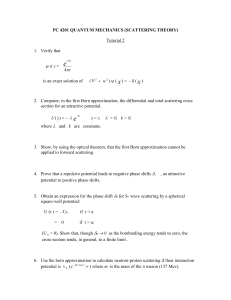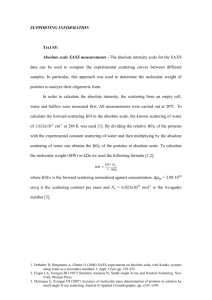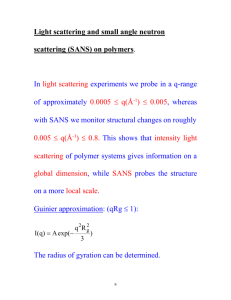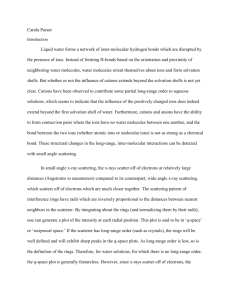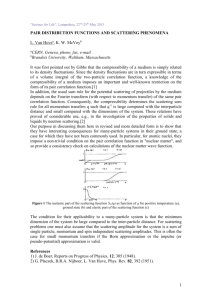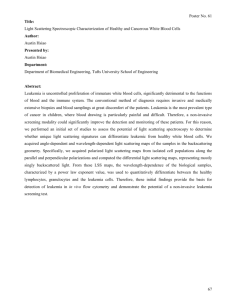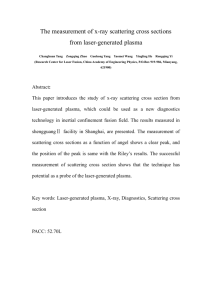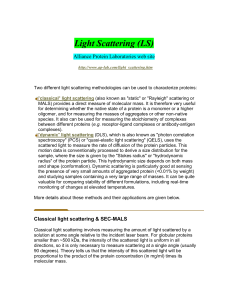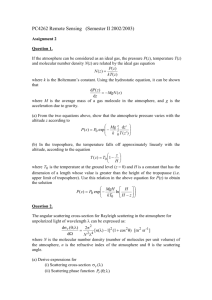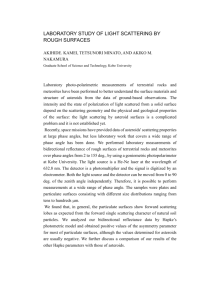Laser light scattering study of nanostructures
advertisement
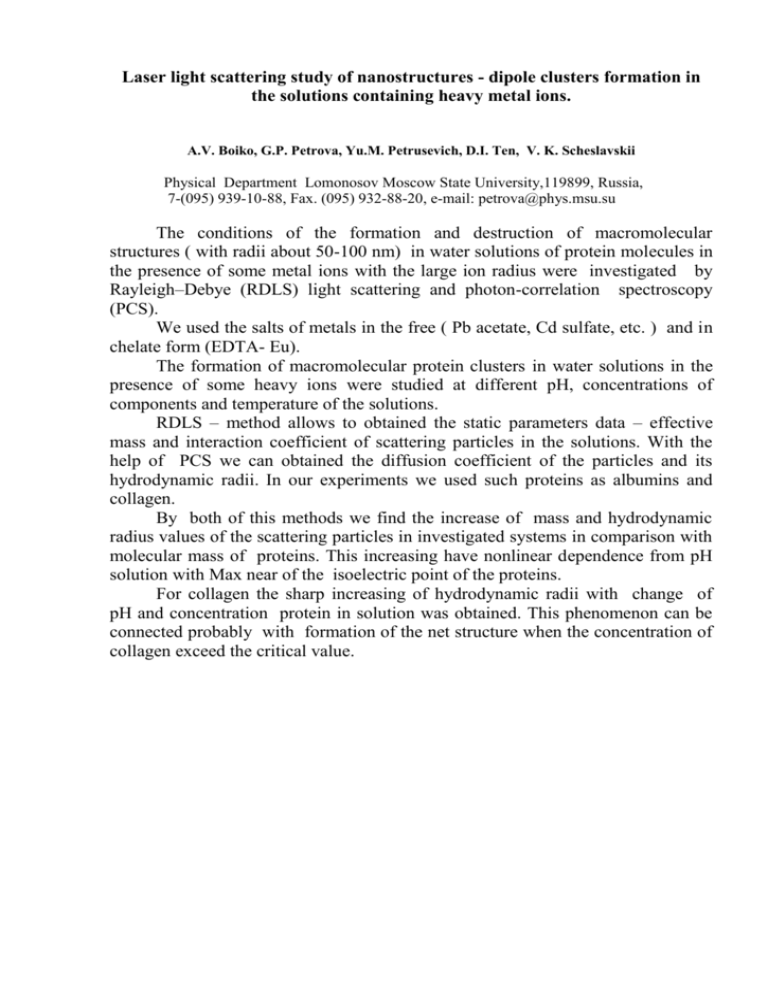
Laser light scattering study of nanostructures - dipole clusters formation in the solutions containing heavy metal ions. A.V. Boiko, G.P. Petrova, Yu.M. Petrusevich, D.I. Ten, V. K. Scheslavskii Physical Department Lomonosov Moscow State University,119899, Russia, 7-(095) 939-10-88, Fax. (095) 932-88-20, e-mail: petrova@phys.msu.su The conditions of the formation and destruction of macromolecular structures ( with radii about 50-100 nm) in water solutions of protein molecules in the presence of some metal ions with the large ion radius were investigated by Rayleigh–Debye (RDLS) light scattering and photon-correlation spectroscopy (PCS). We used the salts of metals in the free ( Pb acetate, Cd sulfate, etc. ) and in chelate form (EDTA- Eu). The formation of macromolecular protein clusters in water solutions in the presence of some heavy ions were studied at different pH, concentrations of components and temperature of the solutions. RDLS – method allows to obtained the static parameters data – effective mass and interaction coefficient of scattering particles in the solutions. With the help of PCS we can obtained the diffusion coefficient of the particles and its hydrodynamic radii. In our experiments we used such proteins as albumins and collagen. By both of this methods we find the increase of mass and hydrodynamic radius values of the scattering particles in investigated systems in comparison with molecular mass of proteins. This increasing have nonlinear dependence from pH solution with Max near of the isoelectric point of the proteins. For collagen the sharp increasing of hydrodynamic radii with change of pH and concentration protein in solution was obtained. This phenomenon can be connected probably with formation of the net structure when the concentration of collagen exceed the critical value.
